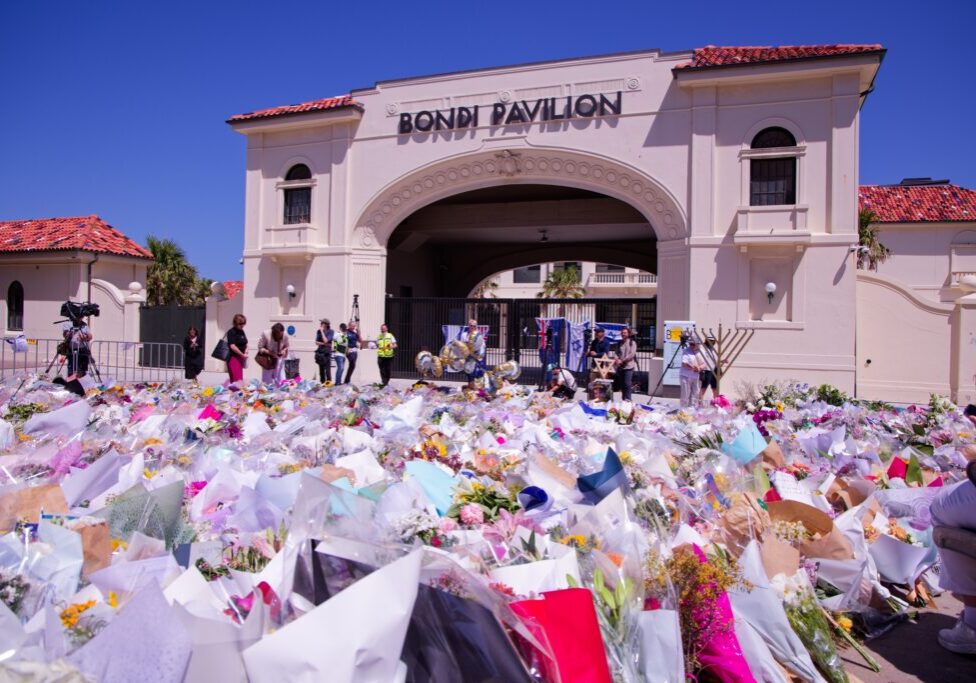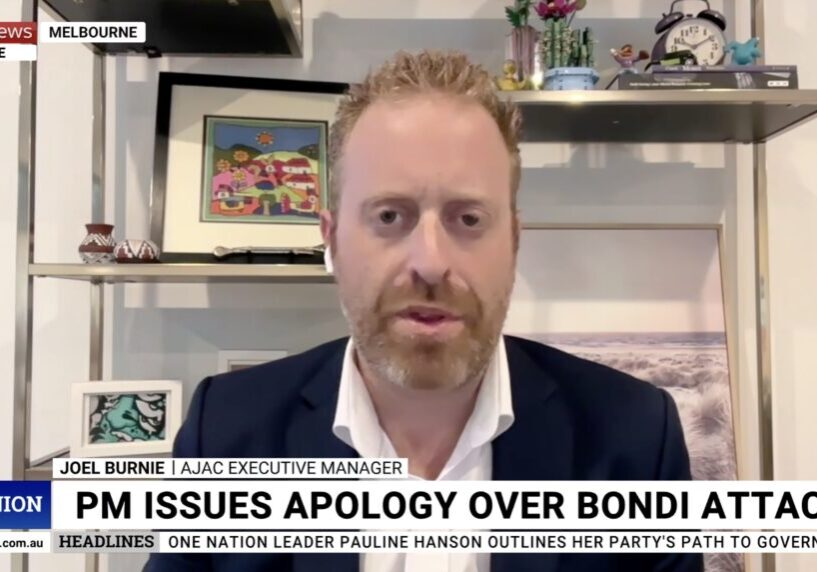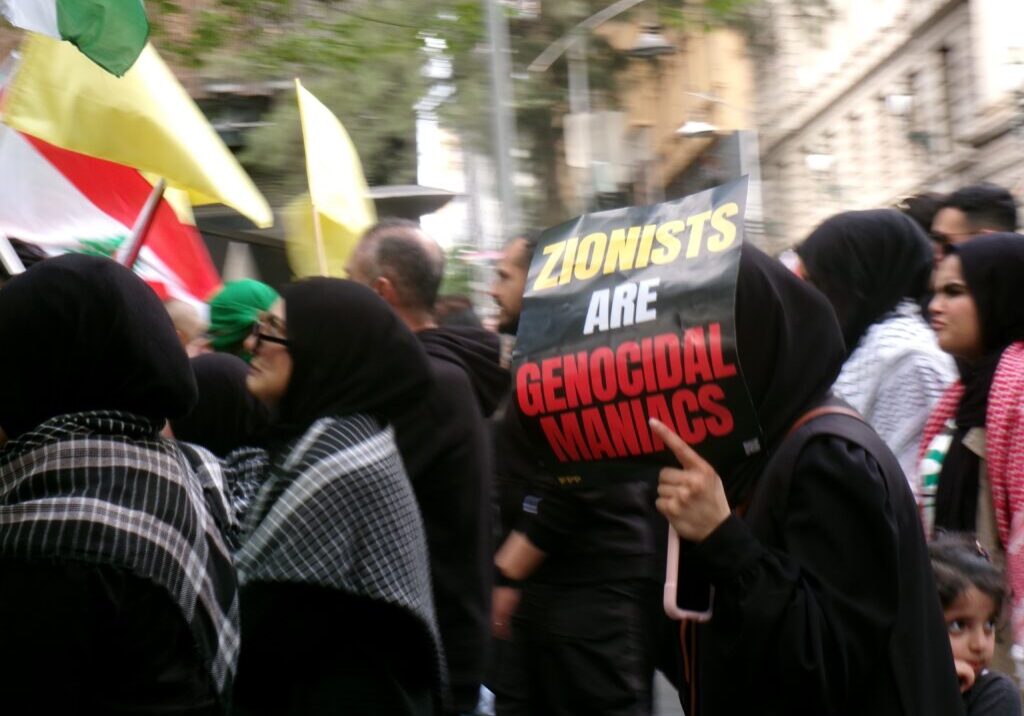Australia/Israel Review
Cordoba Days
Jul 1, 2005 | Jeremy Jones
A gain in Spain?
By Jeremy Jones
During Soviet times, the story was told of a young man who opted to become a futurologist rather than meet his family’s expectations of becoming a historian. His argument was that, under Communism, it was not too hard to predict the future but it was almost impossible to predict the past.
If we cast our minds back to the earlier years of last century, would it have been possible to predict that a conference would be convened in Spain, in June 2005, which presented that country’s past as one of three faiths, living in harmony, with no reference to the wars of conquest, expulsions and forcible conversions which brought an end to a temporary idyll?
Cordoba, where the Organisation for Security and Co-operation in Europe (OSCE), convened its 2005 Conference on Antisemitism and on Other Forms of Intolerance, contains both significant Jewish landmarks and the skeleton of what was once the largest mosque in the world. However, for most of the past six centuries, it was very much a mono-cultural Catholic centre which related to other faiths in triumphalism rather than dialogue.
Maimonides represents the tolerant aspect of Cordoba’s history
In one way, Spain’s place in Jewish history, as the country which once nurtured great poets and philosophers including Rabbi Moses ben Maimon (‘Maimonides’), then was the site of the Inquisition, torture and Church and State sanctioned ethnic cleansing, made it an appropriate host for the successor conference to the 2004 meeting which took place in Berlin.
Delegates from over 50 governments and twice that number of Non-Government Organisations (NGOs) met to review the way commitments made by governments a year earlier had been honoured; to make and hear speeches directly or tenuously related to the subject of antisemitism; to swap observations and ideas; and to draft the 2005 declaration on the subject.
This formal gathering was preceded by a forum for NGOs in Seville, which allowed for an additional list of speakers to present papers and promote debate.
At the Berlin meeting, the focus of government presentations was overwhelmingly on the problem of antisemitism and what could and should be done to limit its harm and restrict its ability to infiltrate and pollute public debate.
The discussions and outcome seemed to have marked a turning point in understanding of the reality of contemporary antisemitism and the responsibility of governments in combating this phenomenon.
One result of that conference was the appointment of Dr Gert Weisskichen, an outstanding German politician and academic, as the OSCE’s special representative on antisemitism.
In the Cordoba conference, the OSCE and its Office for Democratic Institutions and Human Rights (ODIHR) tabled a series of useful teaching materials and background papers which were testimony to the value of the Berlin conference.
NGOs and national government agencies from Europe also provided material, some of which challenged any overwhelming positive feeling of achievement.
Very few countries had instigated reforms regarded as essential a year earlier, particularly in the area of monitoring and seriously analysing manifestations of physical acts of antisemitism and the proliferation of anti-Jewish material.
Far from accepting that the ancient prejudice of antisemitism required a long-term commitment if it is to be effectively countered, a number of government delegates and invited speakers to Cordoba suggested that it was time to move on and move our focus away from attacks on Jews (this despite the fact the OSCE already has a range of programs on other social problems).
Some speakers managed to make formal plenary speeches in a conference on antisemitism without even mentioning it, with one keynote speaker declaring bluntly that it was a past, rather than present or potentially future, phenomenon.
Professor Yehuda Bauer returned the conference to harsh reality with his paper, which addressed the phenomonen of changing ethnic and religious demographics in Europe, and Paul Goldenberg of the US delegation gave an inspiring speech on how the OSCE was facilitating improved police action against the perpetrators of hate crimes.
Workshops and so-called side events added a great deal of value to participants who preferred action to reporting.
I attended and participated in serious discussions on international cooperation to combat antisemitism on the internet; on the challenge to legislators presented by satellite television which contains material in breach of national standards; on Catholic-Jewish understanding; on cooperation between NGOs in combating antisemitism and other forms of prejudice and intolerance; and on the role of parliamentarians in combating anti-Jewish propaganda.
As the only Australian participant, I was bombarded with questions on topics such as interfaith dialogue and how Australia appears to have achieved more than any other country in this field, the Australian parliamentary resolutions against antisemitism adopted during 2004, the activities of internationally notorious propagandists such as Fredrick Toben, and how I, an “outsider”, viewed developments in Europe.
A great deal of hard work by NGOs, under the de facto leadership of Rabbi Andy Baker of the American Jewish Committee, helped ensure that the outcome document, the Cordoba Declaration, contained enough that could be seen to provide the potential for the OSCE to continue to play a leadership role in promoting understanding of, and response to, antisemitism. However, it still seemed to lack the clear focus of the 2004 declaration.
Not only parliamentarians from OSCE member states and regional NGOs, but everyone who wants to see the harm of antisemitism diminished, must now work to ensure that the unique nature of this evil, and its specific manifestations, are not allowed to fall under the radar of European Governments.
Tags: Antisemitism






